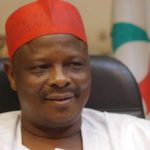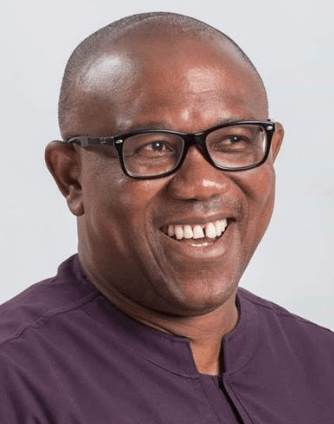The Vice Presidential Candidate of the People’s Democratic Party, Mr. Peter Obi on Wednesday decried the nation’s rising debt profile.
He accused the regime of the President, Major-General Muhammadu Buhari (retd) of embarking on excessive and reckless borrowing.
Obi in a statement by his media aide, Valentine Obienyem, also said the current debt position of the country called for serious concern.
According to him, financial borrowing was not entirely bad if the borrowed funds were put into productive use. He, however, said that borrowing without a business case or convincing business plan only meant mortgaging the future.
He said, “Everybody knows my stand on borrowing. I am against reckless borrowing and borrowing for consumption. If you must borrow, you must be able to convincingly prove to us the business case of the borrowing, otherwise, you are mortgaging the future.”
“All the funds that have been borrowed for long in the country have not impacted positively on the growth of Nigeria’s economy, meaning that they were reckless and meant for consumption. Even using Kenya & Ghana in Africa for example, both are borrowing like us. But see the difference,
“In 2010, Ghana’s GDP was $32bn, with per capita of $1320, in 2019 is GDP had grown to $64.5bn, with per capita of $2200. And for Kenya in 2010 had a GDP of $42bn, per capita of $912, in 2019 it was $87bn with per capita of $1700, while Nigeria had a per capita of $2,320 in 2010 & in 2919 with all the borrowing it was 1920.”
Obi who is a former Governor of State State warned that excessive financial borrowing would hit the country hard if it was not curtailed.
He added that the country’s borrowed funds from 2008 to date stood at almost 100bn. This, he said, represented a quarter of Nigeria’s Gross Domestic Product.
He said, “It is not enough to tell us that you will use the borrowed funds for this or that without presenting any business case for such funds.”
“No country borrows a quarter of its GDP without showing tangible investments or projects into which the borrowed funds were employed.”
Obi further bemoaned the significant decrease in Nigeria’s Foreign Direct Investment which he said was a result of the high level of insecurity in the country.
He noted that the alarming level of insecurity in the country also discouraged local investors from investing in Nigeria’s economy. This, he said, was negatively affecting the economy.











